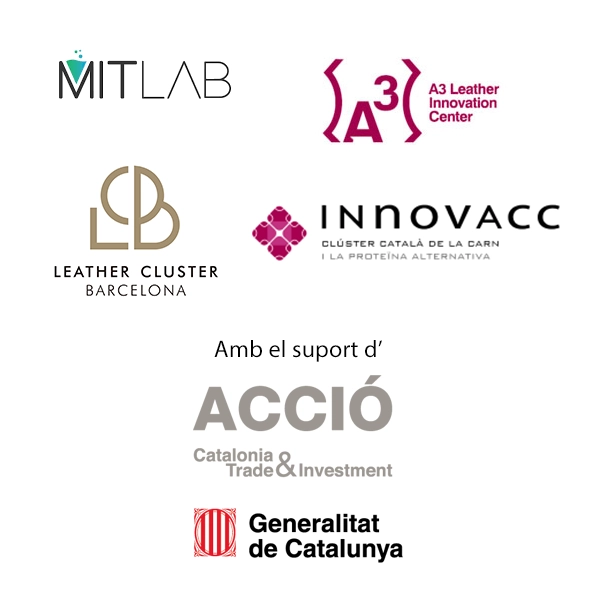One of the basic principles of the circular economy is that all by-products have a second useful life as new raw materials. Currently, the byproducts obtained during the leather tanning process are recovered and managed to be reused by different sectors. In this sense, Leather Cluster Barcelona wants to deepen knowledge for the generation of co-products and participates in the CORIUM project.

The main objective of this project is to carry out a study to assess whether, from biorefinery processes of triacylglycerides extracted from leather flesh, bioproducts and/or biomaterials with high added value and in a sustainable manner can be obtained.
Specifically, CORIUM proposes prospective research to recover the triacylglycerides generated in the fleshing stage, since animal fat mainly contains fatty acids (linoleic, myristic, stearic, palmitic and oleic) of great commercial value. These fats will be extracted through environmentally clean extraction processes, based on the use of green solvents and advanced extraction techniques. These triacylglycerols will be proposed as an ecological alternative to basic petroleum products, such as: lubricants, diesel, polymers, paraffins, etc.
This is a collaborative project coordinated by INNOVACC, the Catalan alternative meat and protein cluster, where in addition to Leather Cluster Barcelona, the research group of the University of Lleida, A3 Leather Innovation Center, and MITLAB (Mollet Institute of Technology) participate. Laboratory), reference laboratory for R&D in industrial and food biotechnology.
The CORIUM project receives the support and financing of ACCIÓ (public agency for the competitiveness of Catalan companies, attached to the Department of Business and Labor of the Generalitat of Catalonia), within the framework of aid for initiatives to strengthen competitiveness for projects of clusters 2023 (aid for business competitive reinforcement projects).
















